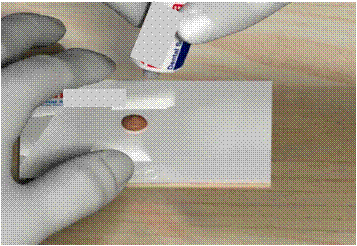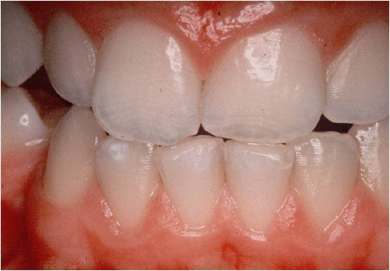Delivering prevention to the patient course for Dental Practitioners



This session describes how the DH toolkit came about, what principles were applied and how it used current evidence to produce guidance on prevention. The latter are described and the evidence for this is shown.
Learning objectives
By the end of this session you will be able to:
- describe the key preventive messages listed in 'Delivering Better Oral Health – An evidence-based toolkit for prevention'
- outline the rationale for individual orientated preventive measures, within a practice population model
- describe the agents available for use for an individual
- identify and list the reviews that support the adoption of an individual based approach
Although caries levels in many age groups are reducing, there is thought to be potential for further improvement by maximising the effects of existing preventive messages and tools.
Before commencing this session you should:
- read 'Delivering Better Oral Health – An evidence-based toolkit for prevention'
BDS, MSc, MCCDRCS, MFDSRCS, FFPH, FFGDP
Immediately prior to moving to DH, Sue was a Consultant in Dental Public Health for Bedfordshire, Luton and Hertfordshire Primary Care Trusts.
Sue sat on the Specialist Advisory Committee for Dental Public Health
Director of two Dental Public Health Training Programmes. She was an invited member on the Board of Faculty of Dental Surgery, and chairman of the BASCD Consultants in Dental Public Health Group.
Sue is a past President of the British Association for the Study of Community Dentistry, from 2006 to 2007.
Sue led the development and implementation of the Bedfordshire Orthodontic Personal Dental Services Pilot. She worked with the Department of Health and FGDP(UK) on national guidance for ’Dentists with a Special Interest’. She chaired the joint DH/BASCD working group which developed the practical toolkit ’Delivering better oral health’.


Dr. Davies qualified from Birmingham and, after four years in general practice, undertook a Masters then a PhD in dental public health. She gained experience of clinical research whilst working for Colgate-Palmolive as a Research Fellow. As a Specialist in Dental Public Health for NHS Manchester she oversees dental epidemiology and provides information which assists with commissioning dental services. She leads the Dental Health Promotion activity and has Regional and National roles concerned with dental epidemiology.
Gill was heavily involved with the collation of Delivering Better Oral Health – the prevention toolkit.
- Medical and Pharmacology | Human diseases and medi...
- Posted By eIntegrity Healthcare e-Learning
- Posted Date: 2024-11-06
- Location:Online
- This session will describe rheumatoid arthritis (RA), systemic lupus erythaematosus (SLE) and Sjögren’s syndrome. It will also identify the medications used for each condition and consider the impact of each condition on dental care.
- Medical and Pharmacology | Human diseases and medi...
- Posted By eIntegrity Healthcare e-Learning
- Posted Date: 2024-11-06
- Location:Online
- This session provides an overview of some of the clinically important respiratory challenges you may come across as a dental practitioner.
- Medical and Pharmacology | Human diseases and medi...
- Posted By eIntegrity Healthcare e-Learning
- Posted Date: 2024-11-06
- Location:Online
- This session describes the signs and symptoms that may manifest in patients diagnosed with common renal problems and the relevance of common renal disorders to the delivery of dental care.
- Medical and Pharmacology | Human diseases and medi...
- Posted By eIntegrity Healthcare e-Learning
- Posted Date: 2024-11-06
- Location:Online
- This session will look at the relevance of common neurological disorders to the delivery of dental care by the dental practitioner.
- Medical and Pharmacology | Human diseases and medi...
- Posted By eIntegrity Healthcare e-Learning
- Posted Date: 2024-11-06
- Location:Online
- This session will look at the signs and symptoms of neurological disorders and how the dental practitioner may recognise them.







